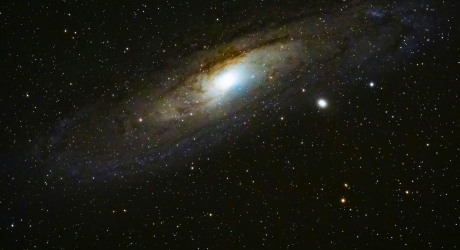Modern thinkers are not willing to admit any such source of knowledge as is established through the intervention of God. Atheism holds the demands of religion that people should believe in something beyond their perception to be not only illogical but indicative of the non-reality of its premises. Were this not so, human access to it would be a possibility. Since religion and its followers have always existed in history—in spite of Auguste Comte’s (1798-1851) prediction that with the spread of science they would disappear — atheists are forced to find an explanation for this phenomenon. To be convincing, they have to allude to events, which have certain elements in common with religious happenings, this being more easily understandable by the common man. Poetry, with its resounding metaphors, is one of the richest sources of such parallels, and, having cited them, they proceed to pronounce religion to be nothing more than a kind of neutral mental activity.
According to Toynbee there are two ways of perceiving the truth. One is the scientific method, which is based on observation and experiment. The other is the poetic method, which springs from within. The first method yields scientific truth and the second poetic truth. He observes: “On the poetic level of the subconscious psyche, the comprehensive vision is prophecy.”
In the Encyclopaedia of Social Sciences, religion has been likened to art. It puts forward the view that just as certain individuals have a special taste for art, and exercise their extraordinary talent in that field, so certain other individuals have been specially gifted with ‘inner eyes and ears’ and it is this unique talent which displays itself as the mainstay of religion.
T.R. Miles, in his book, Religion and the Scientific Outlook, observes: “If the metaphysical realities of religion are understood literally, they are meaningless. Some meaning could be attached to them if they are understood as the ‘language of parable.’ To Miles, if revelation is taken to mean the word of God which is revealed to a particular man, that makes no sense. But when it is taken to mean a ‘flash of insight’, then that is understandable, because “this is a perfectly legitimate use of the word ‘revelation’ in ordinary speech.” We say of a particular discovery that it was an ‘absolute revelation’. Any piece of profound insight can likewise be referred to as a ‘revelation’ (p.196). Similarly, he says that the concept of life after death is not understandable when it is taken literally, but that we can understand it if it is understood as the language of parable. It is because we know full well that the body disintegrates after death and the soul ends with the body that the concept of life after death is literally unintelligible.
Alexis Carrel calls revelation mysticism. To him:
The search for God is, indeed, an entirely personal undertaking. By the exercise of the normal activities of his consciousness, man may endeavour to reach an invisible reality both immanent in and transcending the material world.
Thus he throws himself into the most audacious adventure that one can dare. He maybe looked upon as a hero or a lunatic. But nobody should ask whether mystical experience is true or false, whether it is autosuggestion, hallucination, or a journey of the soul beyond the dimensions of our world and its union with a higher reality. One must be content with having an operational concept of such an experience. Mysticism is splendidly generous. It brings to man the fulfillment of his highest desires: inner strength, spiritual light, divine love, ineffable peace. Religious intuition is as real as aesthetic inspiration. Through the contemplation of superhuman beauty mystics and poets may reach the ultimate truth. (p.132)











